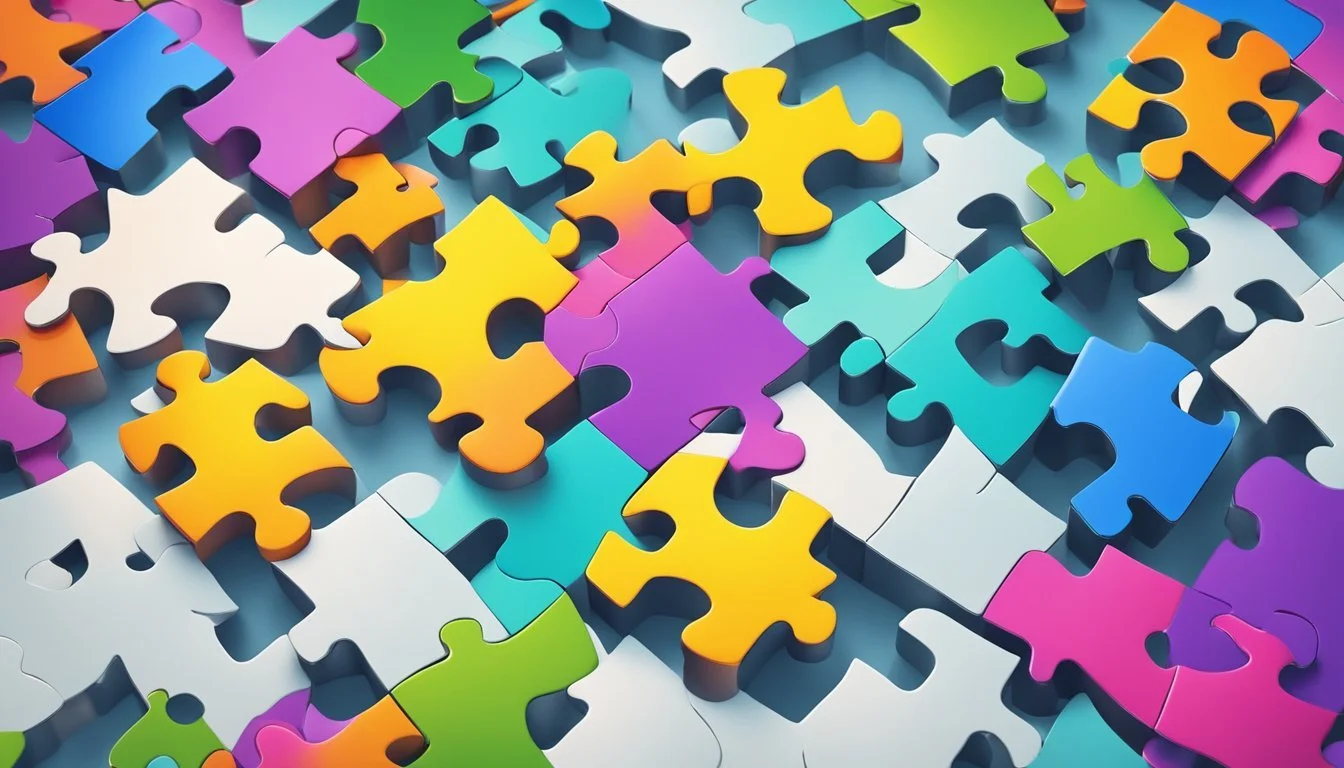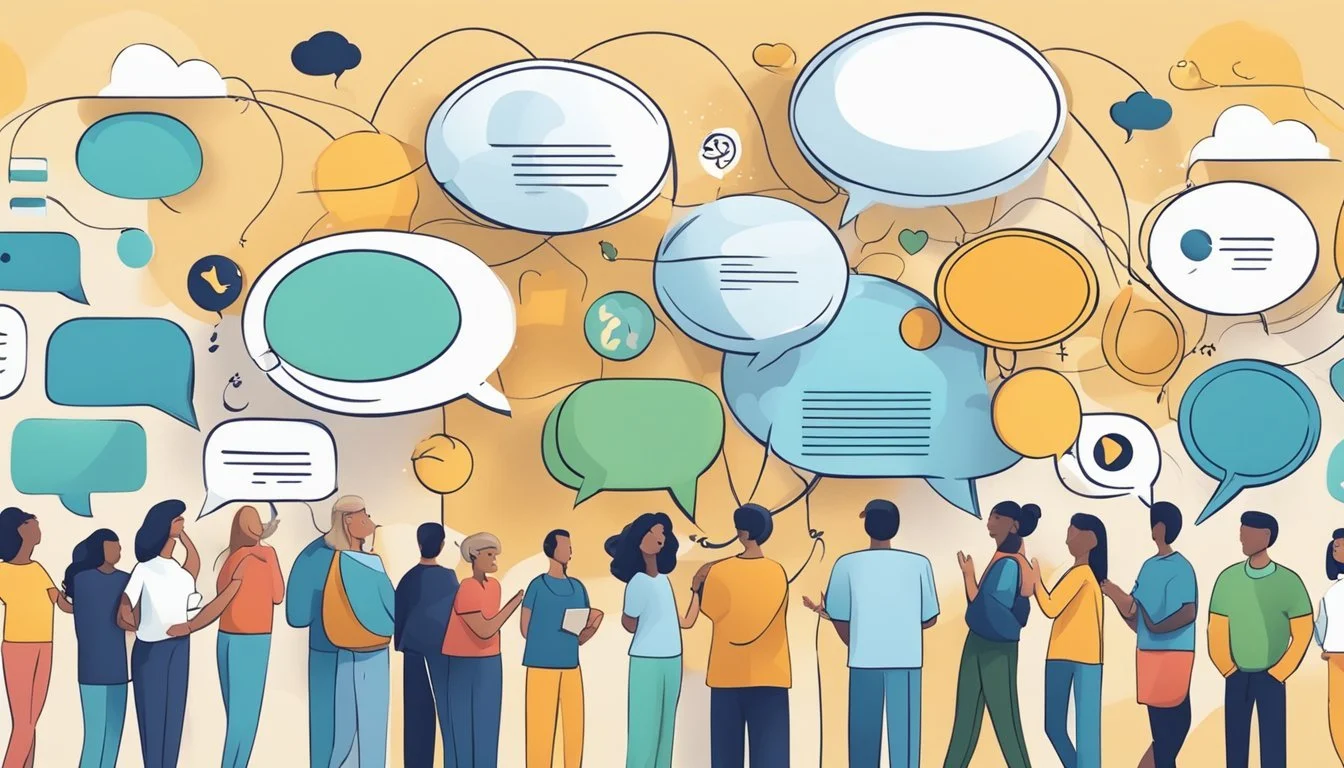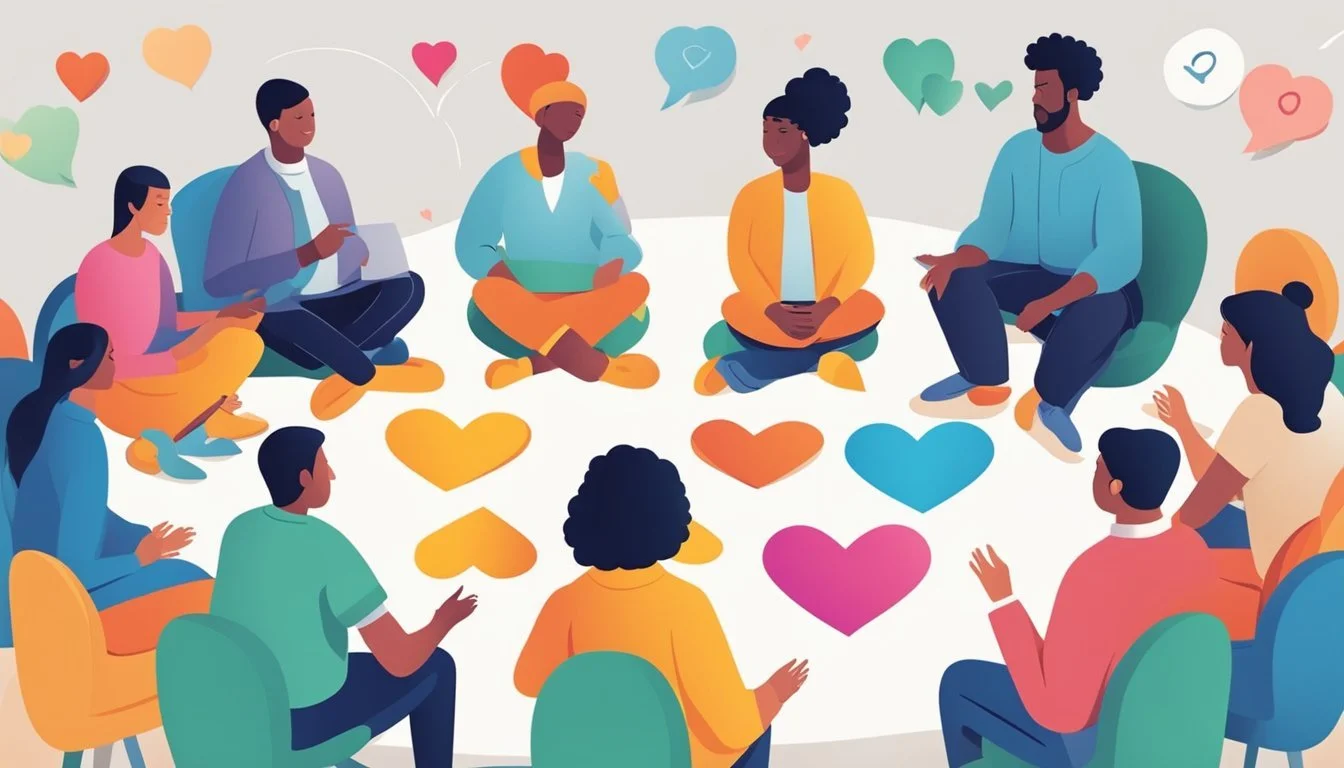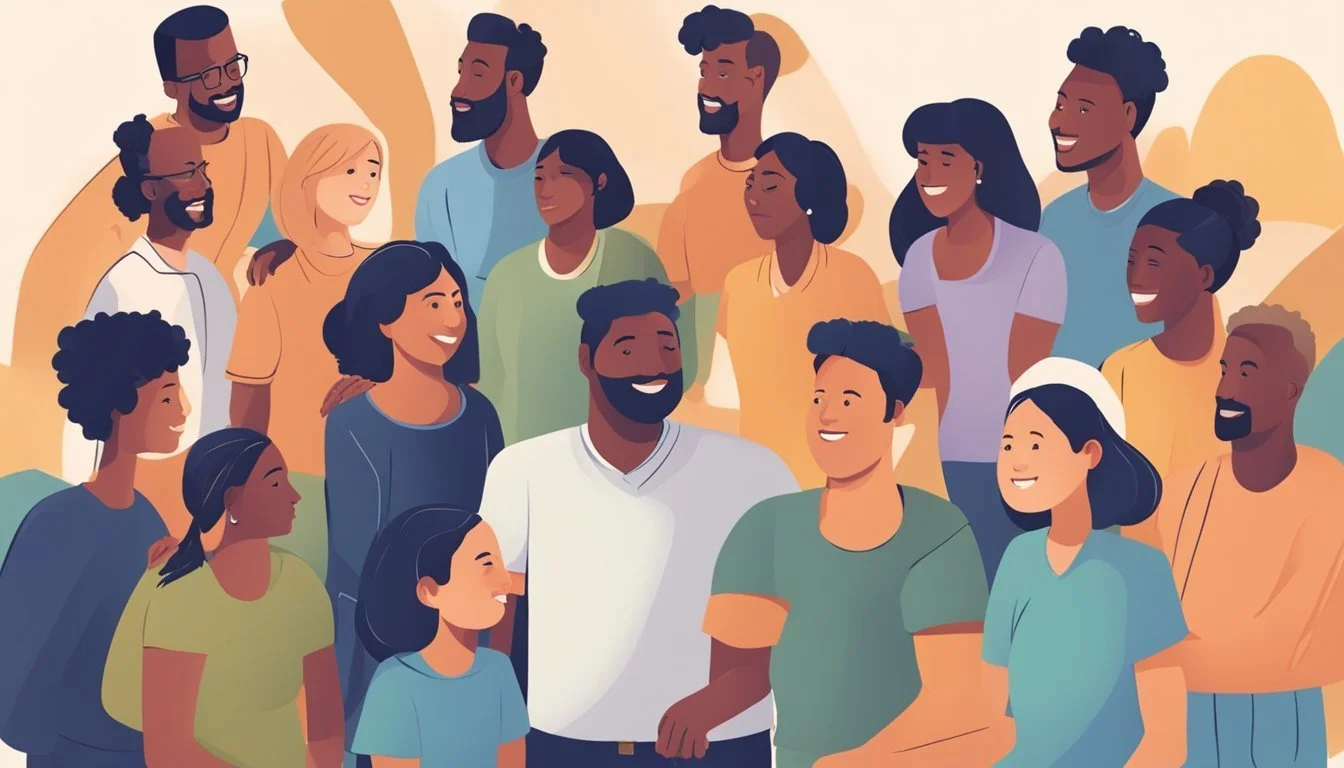9 Strategies for Maintaining Long-Term Friendships with BPD
Nurturing Stable Relationships
Borderline Personality Disorder (BPD) can significantly impact personal relationships, including friendships. Individuals with BPD often experience intense emotions and fear of abandonment, which can create challenges in maintaining long-term connections. These difficulties may lead to unstable or short-lived friendships, causing distress for both the person with BPD and their friends.
Despite these obstacles, it is possible to cultivate and preserve meaningful friendships when BPD is involved. By implementing specific strategies and approaches, individuals with BPD and their friends can work together to build strong, lasting relationships. Understanding the unique dynamics of BPD and developing effective communication skills are key components in fostering healthy, supportive friendships that can withstand the complexities associated with this mental health condition.
1) Establish Clear Boundaries
Setting clear boundaries is crucial for maintaining long-term friendships when one person has Borderline Personality Disorder (BPD). Boundaries help define acceptable behaviors and establish expectations within the relationship.
For individuals with BPD, communicating their needs and limits can be challenging. It's important to express boundaries calmly and directly, without accusation or blame.
Friends should also establish their own boundaries. This includes being clear about personal space, emotional availability, and time commitments. Consistent enforcement of these boundaries helps create a stable foundation for the friendship.
Both parties benefit from discussing boundaries early in the relationship. Regular check-ins allow for adjustments as needs change over time. It's essential to respect each other's boundaries and address any violations promptly.
Healthy boundaries foster mutual respect and understanding. They provide a framework for navigating difficult emotions and situations that may arise. With clear boundaries in place, both friends can feel secure and supported in the relationship.
2) Practice Active Listening
Active listening is a crucial skill for maintaining friendships, especially when supporting someone with Borderline Personality Disorder (BPD). This technique involves giving full attention to the speaker and truly understanding their message.
When practicing active listening, focus entirely on what your friend is saying without interrupting or planning your response. Show engagement through nonverbal cues like eye contact and nodding.
Reflect back what you've heard to ensure understanding. Use phrases like "It sounds like you're feeling..." or "If I'm hearing you correctly..." This validates their experiences and emotions.
Avoid judgmental responses or immediately offering solutions. Instead, ask open-ended questions to encourage further sharing and demonstrate genuine interest in their perspective.
By consistently employing active listening, friends can create a safe space for open communication. This fosters trust and helps individuals with BPD feel heard and understood, strengthening the bond between friends.
3) Offer Consistent Support
Providing steady support is crucial when maintaining friendships with individuals who have Borderline Personality Disorder (BPD). Consistency helps create a sense of security and trust in the relationship.
Be reliable and follow through on commitments. If plans are made, stick to them as much as possible. This reliability can help alleviate some of the fear of abandonment that people with BPD often experience.
Offer emotional support during both good and challenging times. Listen without judgment and validate their feelings. This doesn't mean agreeing with everything, but rather acknowledging their emotions as real and important.
Set clear boundaries while remaining supportive. Establish limits on behaviors that may be harmful or draining, but continue to show care and understanding. This balance can help maintain a healthy friendship.
Be patient and understanding during mood swings or intense emotional reactions. Remember that these are symptoms of BPD and not personal attacks. Maintain a calm and reassuring presence during these times.
Encourage professional help when needed, but avoid trying to "fix" the person. Support their efforts to seek treatment and celebrate their progress in managing their symptoms.
4) Encourage Open Communication
Open communication is vital for maintaining long-term friendships when living with Borderline Personality Disorder (BPD). Individuals with BPD should strive to express their thoughts and feelings honestly and directly to their friends.
It's important to create a safe space where both parties feel comfortable sharing their perspectives. This can help prevent misunderstandings and reduce the likelihood of emotional outbursts.
Friends of those with BPD should be encouraged to ask questions and voice their concerns. This openness allows for better understanding and support on both sides.
Setting clear boundaries is also crucial. People with BPD can benefit from discussing their triggers and needs with friends, while also respecting their friends' limits and personal space.
Regular check-ins can help maintain open lines of communication. These conversations provide opportunities to address any issues before they escalate and reinforce the strength of the friendship.
5) Educate Yourself About BPD
Learning about Borderline Personality Disorder (BPD) is crucial for maintaining long-term friendships with individuals who have this condition. Understanding the symptoms, triggers, and challenges associated with BPD can help friends provide better support and empathy.
Reliable sources such as mental health organizations, academic journals, and reputable websites offer valuable information about BPD. These resources can provide insights into the emotional instability, fear of abandonment, and interpersonal difficulties that people with BPD often experience.
Books written by mental health professionals and memoirs by individuals with BPD can offer deeper perspectives on the disorder. These personal accounts can help friends gain a more nuanced understanding of how BPD affects daily life and relationships.
Attending support groups or workshops focused on BPD can provide practical knowledge and coping strategies. These events often offer opportunities to learn from both professionals and individuals with lived experience of the disorder.
By educating themselves, friends can develop more effective communication strategies and set realistic expectations for the relationship. This knowledge can also help them recognize and respond appropriately to BPD-related behaviors, fostering a more stable and supportive friendship.
6) Prioritize Self-Care
Self-care is crucial for individuals with BPD to maintain emotional stability and nurture healthy friendships. Regular self-care practices help manage symptoms and improve overall well-being.
Engaging in activities like meditation, exercise, or creative pursuits can reduce stress and enhance mood. These practices provide a sense of calm and centeredness, making it easier to navigate social interactions.
Getting adequate sleep, eating nutritious meals, and staying hydrated are fundamental aspects of self-care. These basic needs support emotional regulation and cognitive function, which are essential for maintaining friendships.
Setting aside time for relaxation and enjoyable activities helps recharge emotional batteries. This can include reading, taking baths, or spending time in nature.
Seeking therapy or attending support groups provides valuable tools for managing BPD symptoms. These professional resources offer guidance on developing coping strategies and improving interpersonal skills.
Practicing mindfulness techniques can help individuals stay present in their friendships. This allows for more authentic connections and reduces the likelihood of misunderstandings or conflicts.
7) Develop Coping Strategies Together
People with BPD often struggle with intense emotions and impulsive behaviors. Working together to develop effective coping strategies can strengthen friendships and provide mutual support.
Identify triggers that may lead to emotional distress or conflicts. Discuss these openly and brainstorm ways to manage them proactively.
Create a list of healthy coping mechanisms that work for both individuals. This might include deep breathing exercises, mindfulness practices, or engaging in shared hobbies.
Practice these strategies together during calm times. This helps build familiarity and makes them easier to implement during stressful situations.
Encourage each other to use these coping tools when needed. Offer gentle reminders and support without judgment.
Regularly review and adjust strategies as needed. What works today may need to be modified in the future as circumstances change.
Be patient and understanding throughout this process. Developing effective coping strategies takes time and effort, but the benefits to the friendship can be significant.
8) Be Patient and Understanding
Maintaining friendships with individuals who have Borderline Personality Disorder (BPD) requires patience and understanding. BPD can cause intense emotional reactions and rapidly shifting moods, which may be challenging for friends to navigate.
It's important to remember that these behaviors stem from the disorder, not personal attacks. Friends should strive to remain calm and composed during difficult interactions, avoiding reactive responses that could escalate tensions.
Understanding the core fears and triggers associated with BPD can help friends respond more effectively. Common concerns include fear of abandonment and rejection, which may manifest as clingy behavior or pushing others away.
Patience is crucial when supporting a friend with BPD through treatment. Progress may be slow and non-linear, with setbacks along the way. Celebrating small victories and offering consistent support can make a significant difference.
Practicing empathy and active listening can strengthen the friendship. Validating emotions without necessarily agreeing with actions helps create a supportive environment. Friends should also set clear boundaries to maintain their own well-being while being there for their BPD friend.
9) Avoid Judging or Criticizing
People with BPD often struggle with intense self-criticism and fear of rejection. Judgmental or critical comments from friends can exacerbate these feelings, potentially damaging the relationship.
Instead of criticizing, focus on understanding and acceptance. Recognize that BPD symptoms are not a choice, but rather a manifestation of the disorder.
When discussing challenging behaviors, use "I" statements to express concerns without sounding accusatory. For example, say "I feel worried when..." rather than "You always..."
Practice empathy and try to see situations from the BPD friend's perspective. This approach can help foster a supportive environment where they feel safe and understood.
Remember that change takes time. Patience and consistent support are key to maintaining long-term friendships with individuals who have BPD.
Encourage positive behaviors and progress, no matter how small. Genuine praise can help boost self-esteem and reinforce healthy relationship patterns.
Understanding Borderline Personality Disorder
Borderline Personality Disorder (BPD) is a complex mental health condition characterized by intense emotions, unstable relationships, and impulsive behaviors. It affects how individuals perceive themselves and others, leading to significant challenges in daily life.
Characteristics of BPD
People with BPD often experience intense mood swings and emotional instability. They may struggle with a fear of abandonment, leading to frantic efforts to avoid real or perceived rejection.
Impulsivity is another key feature, manifesting in risky behaviors like substance abuse or reckless spending. Many individuals with BPD report chronic feelings of emptiness and struggle with their sense of identity.
Relationships are frequently tumultuous, marked by idealization followed by devaluation. Anger management issues and self-harm behaviors are also common among those with BPD.
Common Misconceptions
BPD is often misunderstood, leading to stigma and misinformation. One prevalent myth is that people with BPD are manipulative or attention-seeking. In reality, their behaviors stem from genuine emotional pain and distress.
Another misconception is that BPD is untreatable. While challenging, effective therapies like Dialectical Behavior Therapy (DBT) can significantly improve symptoms and quality of life.
Some believe BPD only affects women, but it occurs in all genders. The idea that people with BPD cannot maintain stable relationships is also false; with proper support and treatment, many form lasting connections.
Effective Communication Strategies
Mastering effective communication is crucial for maintaining long-term friendships when living with Borderline Personality Disorder (BPD). Clear and empathetic exchanges help foster understanding and reduce misunderstandings.
Active Listening Techniques
Active listening forms the foundation of meaningful conversations. It involves fully concentrating on the speaker, understanding their message, and responding thoughtfully. People with BPD can benefit from practicing reflective listening, where they paraphrase what their friend has said to ensure comprehension.
Asking clarifying questions demonstrates engagement and prevents assumptions. Non-verbal cues like maintaining eye contact and nodding show attentiveness. Avoiding interruptions allows friends to express themselves fully.
Validating emotions is particularly important. Acknowledging a friend's feelings without judgment creates a supportive atmosphere. This technique helps individuals with BPD recognize and accept their own emotions as well.
Setting Healthy Boundaries
Establishing clear boundaries is essential for preserving friendships. People with BPD may struggle with limits, but learning to respect them strengthens relationships. Communicating personal needs and limits openly prevents misunderstandings and resentment.
Being specific about boundaries helps friends understand expectations. For example, discussing preferred methods and frequency of contact can prevent feelings of abandonment or overwhelming closeness. It's important to express boundaries assertively yet kindly.
Respecting others' boundaries is equally crucial. Asking for permission before sharing personal information or offering advice shows consideration. Recognizing when a friend needs space and honoring that request builds trust and mutual respect.
Building Emotional Resilience
Developing emotional resilience is crucial for maintaining long-term friendships when living with BPD. It involves learning to manage intense emotions and cultivating understanding in relationships.
Coping with Emotional Challenges
Individuals with BPD can benefit from developing specific coping strategies to handle emotional intensity. Deep breathing exercises and mindfulness techniques can help regulate emotions in the moment.
Journaling provides an outlet for processing complex feelings without burdening friendships. It allows for self-reflection and tracking emotional patterns over time.
Creating a crisis plan with trusted friends can provide structure during difficult periods. This plan may include agreed-upon steps for seeking help or taking space when emotions become overwhelming.
Regular exercise and maintaining a consistent sleep schedule contribute to overall emotional stability. These habits support the body's natural ability to regulate mood and stress responses.
Practicing Patience and Empathy
Building empathy for oneself and others is essential in nurturing friendships. Recognizing that everyone faces challenges can foster a more compassionate perspective.
Self-compassion practices, such as positive self-talk and acknowledging personal growth, build resilience. These techniques help individuals with BPD navigate self-criticism and maintain a balanced self-image.
Active listening skills strengthen connections and demonstrate care for friends' experiences. This involves focusing on understanding rather than formulating responses.
Setting realistic expectations for friendships prevents disappointment and reduces emotional volatility. It's important to recognize that all relationships have ups and downs.
Seeking professional support, such as therapy, can provide valuable tools for developing patience and empathy. Therapists can offer strategies tailored to individual needs and relationship dynamics.









